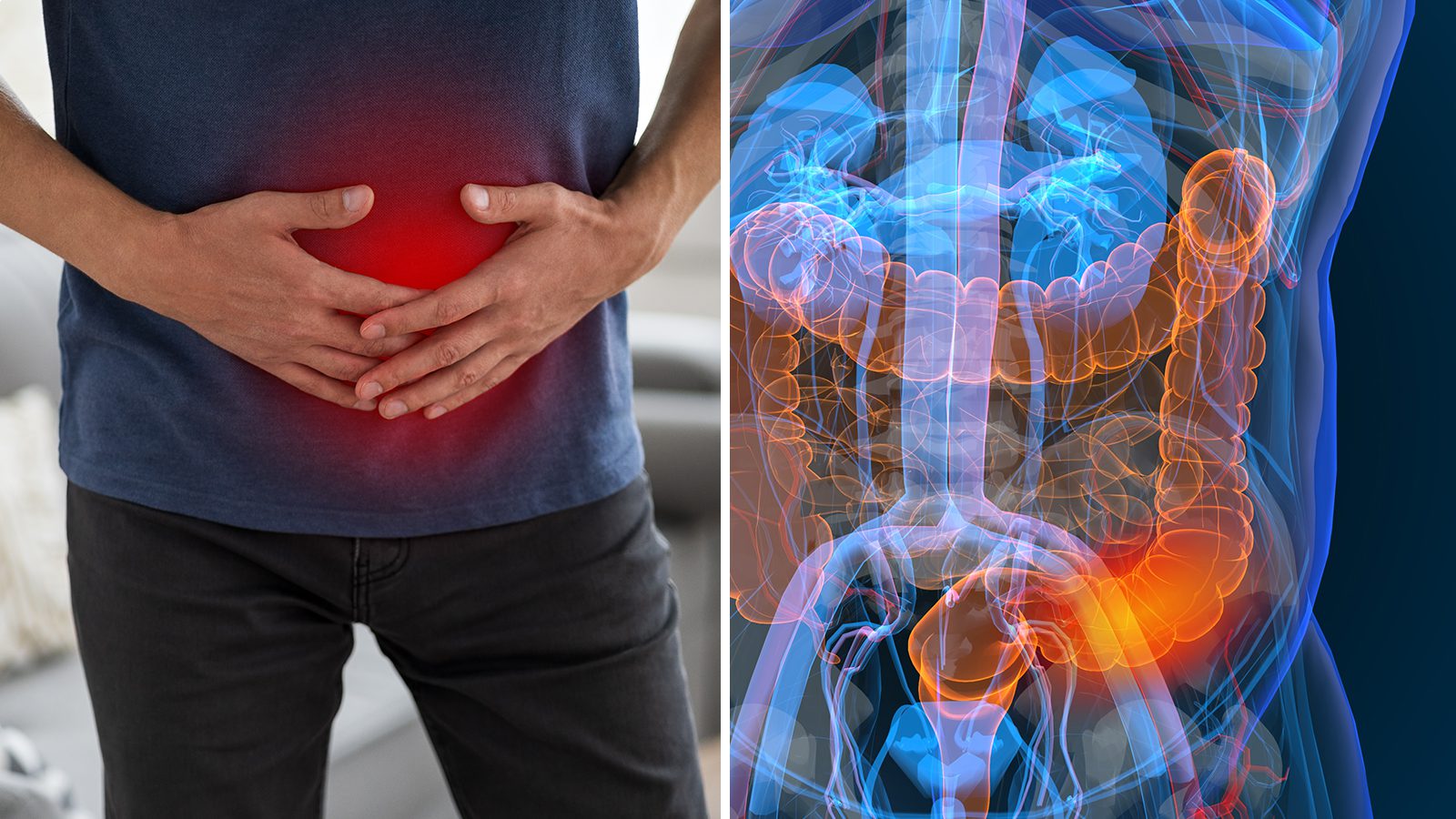Signs of colon cancer can be confusing because common ailments can indicate other issues. You might not realize that your body is signaling a life-threatening condition. It often leads to ignoring the signs of colorectal cancer, but it’s always best to contact a health professional to be safe.
Even if you believe your symptoms aren’t life-threatening, consider visiting your doctor early. It can either reassure you that it’s not cancer or get you into treatment before cancer spreads.
Understanding the risk factors and signs of colorectal cancer can help save your life. Ignoring the symptoms can have deadly consequences, so it’s always best to know for sure.
Risk Factors of Colon Cancer
Some risk factors increase your chance of developing colon cancer. Understanding the risks can help you decide to make beneficial life changes. Some of the risks include the following:
- Unhealthy diet: Overeating red or processed meat can increase colorectal cancer risk.
- Being overweight: The risk of colon cancer increases for those who are overweight or obese. It increases the risk for men and women, although men have the biggest risk increase.
- Lack of exercise: Physical inactivity can make you more likely to develop colorectal cancer than people who exercise regularly.
- Family history: Colon cancer is hereditary, so you might consider early screening if someone in your family had it.
- Age: Your risk of colon cancer increases as you get older. While young adults can get it, it’s more common after you turn 50.
- Smoking: Many people know that smoking is associated with lung cancer but can also lead to colon cancer.
- Alcohol consumption: Moderate to heavy alcohol consumption can cause colon cancer.
Nine Hidden Signs of Colon Cancer Most People Ignore
Never ignore these red flags–they indicate something is wrong.
1 – Nausea or Vomiting
Colon cancer can cause gastrointestinal issues, including nausea or vomiting. These symptoms typically occur when the tumor cells appear in the upper area or get big enough to cause an intestinal obstruction.
Nausea and vomiting often occur in advanced cancer stages, so you’d probably already know you had it. It often occurs after the patient has already begun treatment. However, it sometimes happens sooner, so it’s essential not to ignore it.
2 – Bloating or Discomfort
Feeling bloated, uncomfortable, or having the persistent urge to have a bowel movement are some signs of colon cancer. You likely also notice an increase in gas and bloating.
Even after a bowel movement, you might still feel like you should go again. It often occurs when a cancer tumor blocks the intestinal tract. While these signs might indicate colon cancer, they can also be a sign of Crohn’s disease, celiac disease, and others.
3 – Blood in Your Stool
Noticing blood in your stool is a sign of colon cancer. You might see blood in the toilet or recognize it when you wipe.
Sometimes you might not realize there’s blood in your stool, but you will notice a change in the appearance. It might look bloody or black, indicating bleeding in your rectum, anus, or digestive tract.
4 – Cramping
You might want a colon cancer screening if you experience persistent cramps or low back pain. The cramping might involve sharp pains, but it’s sometimes a dull ache.
Cramping is often one of the signs of colon cancer that’s harder to recognize because it can result from many other common conditions. It could occur because of poor diet, food intolerance, stress, excess gas, or poor digestion. However, consider visiting your healthcare professional immediately if your cramping becomes chronic, intense, or long-lasting.
5 – Changing Bowel Movements
Experiencing a change in bowel habits can indicate cancer. Having diarrhea for more than three days is cause for alarm, and you should consider consulting a healthcare provider. Consider discussing constipation that lasts for more than two weeks with a doctor.
Consider tracking when your bowel movements began to change to recognize how long it continues. Tracking can also help you determine if other lifestyle changes are to blame rather than cancer. Plus, the more information you have for your doctor, the more likely it is to get a quick and accurate diagnosis.
6 – Fatigue or Weakness
Fatigue and weakness indicate colon cancer, especially when nothing seems to ease it. You might constantly feel tired, even after improving your health in other ways or getting more sleep.
Cancer cells deplete your energy as they grow, causing your healthy cells to miss out. Additionally, you’ll lose energy if you can’t eat well or experience diarrhea. Sometimes colon cancer causes anemia, another issue that makes you feel tired and weak.
7 – Anemia
Anemia, or a lack of healthy red blood cells, means that your body’s tissues don’t receive enough oxygen or nutrients. It can make you tired and weak and frequently occurs because of internal bleeding. You might also notice that your skin is paler than usual.
Colon cancer sometimes causes internal bleeding if the tumors bleed. It results in a loss of iron in your body, triggering anemia. Your doctor can do a routine blood test to determine if anemia is the issue.
8 – Getting Full Quickly
It could be a sign of colon cancer if you feel full soon after you start a meal. You might be full because you feel nauseous or if the tumor is large enough to affect the intestinal tract.
Getting full quickly might put pressure on your stomach, signaling to your brain that you’re already full. This sign is often overlooked but is common, and discussing it with a healthcare professional can save your life.
9 – Rapid or Unexpected Weight Loss
Colon cancer can cause unexplained or unintentional weight loss. You might notice an immediate and dramatic decrease in weight. Experts explain that losing 5% of your body weight without changing your diet, exercise, or sleep patterns fits this description.
You Won’t Always Have Symptoms That Reveal Colorectal Cancer
Some people diagnosed with colon cancer don’t have any symptoms before they begin treatment. Not having symptoms is alarming because you won’t know that you should seek treatment.
Visiting your health professional early on can help save your life. Around 90% of colorectal cancer is treatable when in the early stages. Colorectal cancer is the third most common cancer in the United States, and it’s not worth waiting to see a doctor.
Since colon cancer doesn’t always have symptoms, consider getting a regular screening when you turn 50. Your doctor will likely recommend it, but ask if they don’t.
Lowering Your Risk of Colon Cancer
Having an increased risk of colon cancer can be scary, but there are things you can do to reduce it. These things include the following:
- Eating fruit, vegetables, and grains: These foods are rich in fiber and clear toxic waste from your intestines. They promote healthy bowel movements and lower inflammation.
- Stopping smoking: Smoking increases your chance of developing cancer. Quitting smoking can decrease your risk of rectal cancer.
- Exercising regularly: Getting plenty of exercise can help you fight inflammation, clear toxins, and maintain a healthy weight. It also promotes regular bowel movements.
- Managing your weight: Being overweight or obese can increase your risk of developing cancer. Reaching a healthy weight can be life-changing, and you’ll also feel better overall.
- Limiting alcohol intake: Excessive alcohol intake can increase your risk of colon cancer. Limit how much you drink and how often to promote your health.
How the Doctor Will Know If It’s Cancer
Visiting a healthcare professional can help you get a diagnosis for your symptoms. You’ll start by discussing the signs with your doctor, and they’ll likely do some screening tests to check for abnormalities. The screening results will often help the doctor know if they should do more testing.
Your doctor will likely want to know how long you’ve had symptoms and when they started. They’ll also ask about family history and potential risk factors.
The doctor will also feel your abdomen to check for masses or enlarged organs. They might also want to do a digital rectal exam (DRE), to feel for any abnormal areas in your rectum. Then, if necessary, they’ll consider the following tests:
Colonoscopy
During a colonoscopy, you’ll have a thin tube with a light on it inserted through the anus. It goes into the rectum and colon to observe the inside and identify lumps or growth. From there, the doctor can take a piece of any abnormal growths (biopsy) to check for cancer cells.
CT or CAT Scan
This scan is like an x-ray, but the pictures are more detailed. The doctor can use the results to identify lumps or see if the cancer has spread.
Ultrasound
An ultrasound involves a technician moving a wand around your skin. It gives off sound waves and recognizes echoes bouncing off your tissues. The echoes produce a picture on a computer screen and help identify cancer and if it’s spread to other areas.
Treatment Options for Colon Cancer
Your doctor will help you decide on treatment options if they find you have colon cancer. The options will depend on the size of the tumor and whether it has spread to other areas. Some treatment options include:
- surgery
- radiation
- chemotherapy
- targeted therapy
- immunotherapy
Final Thoughts on Hidden Signs of Colon Cancer Most People Ignore
Many signs of colon cancer are also symptoms of other things, leading to people ignoring them. However, discussing the signs of colon cancer with your doctor is essential. Either they rule out the possibility, or you can receive a diagnosis and begin treatment.
The sooner you start treatment for cancer, the better your chance of overcoming the disease. Early detection can be lifesaving, and you’ll be glad you didn’t ignore the hidden signs of colon cancer.




















